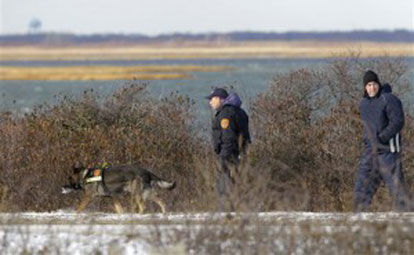The federal government gave preliminary approval Tuesday to formally recognize a small tribe of Indians based in Long Island’s Hamptons region, a decision seen as a key step toward the tribe eventually opening a casino in New York.
Shinnecock Indian tribal leaders first tried to open a casino on their reservation in Southampton in 2003, but they were told the Bureau of Indian Affairs must first formally recognize them as a tribe.
The preliminary approval received Tuesday sets off a review period that could bring final recognition by next spring.
Shinnecock leaders have said they are willing to negotiate an appropriate site for a casino, either on Long Island or in the Catskills upstate.
“We’re not even going to address it tonight,” Randy King told The Associated Press in a telephone interview when asked about a casino. When pressed, he said the tribe would “work closely with state, local officials and congressional leaders” on the subject.
“It’s a great exhale that the tribe is doing, but we’ve always known who we are,” King said.
James Eleazer Jr., a former trustee, said tribal members were gathering at its community center to celebrate with music and song. “Everybody is just extremely excited. This is long overdue,” he said.
“The Shinnecock petitioner has met all seven mandatory criteria for federal acknowledgment,” BIA official George Skibine said in a statement.
He said the criteria included that the Shinnecocks have been continuously identified as an American Indian entity since 1900; have been a distinct community since historical times; and have maintained political influence over members.
About 500 Shinnecock tribal members live in modest homes on a 1,200-acre reservation in Southampton. Nearby, some of the richest people in the world, including Wall Street power brokers and Hollywood celebrities, have sprawling estates worth tens of millions of dollars.
BIA officials reviewed ancestral records and other historical documents of the tribe before determining whether the Shinnecocks met the recognition criteria. The tribe had sought to circumvent the federal approval process by seeking recognition in federal court, but a judge rejected that effort in 2007.
Even with federal recognition, the tribe needs additional federal and state approvals before operating a casino. In addition to being able to operate a casino, federal recognition makes the Shinnecocks eligible for federal grants and other funding.
The Shinnecocks, whose earlier plans for a casino in Southampton sent shudders through their wealthy neighbors in 2003, reached an agreement with the U.S. Department of Interior last May that sped up the process for formal recognition by the Bureau of Indian Affairs. The tribe has been seeking federal recognition since 1978 but stepped up its efforts in recent years.
Tribal leaders have been reticent about discussing their plans for a casino but previously indicated they are willing to negotiate with state leaders on a location. Belmont Park in neighboring Nassau County, as well as various sites on eastern Long Island, have been floated as possible locations for gambling.
The Shinnecocks’ reservation is situated at a narrow strip of waterfront land in Southampton where traffic nightmares — once only an issue for summertime visitors — have become standard year-round.
The BIA also found that the nation “has a governing document describing its governance procedures and membership criteria; and has provided a list of its current members who descend from an historical Indian tribe and are not members of another federally recognized tribe.”
When the Shinnecocks broke ground in 2003 on their proposed Southampton casino, town officials raced into federal court and got an injunction to stop it. Since then, Suffolk County officials formed a task force to study the issue; County Executive Steve Levy said he is waiting for the results of that study before taking a position.
“I think they are well aware and recognize that putting gaming at the reservation is troublesome,” said Suffolk County Legislator Wayne Horsely, who helped organize the task force. “The quality of life and traffic would be just awful.”
Copyright 2009 The Associated Press.




